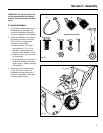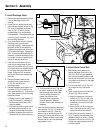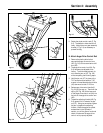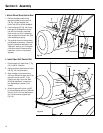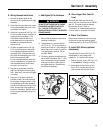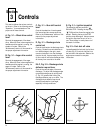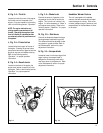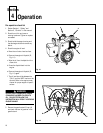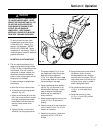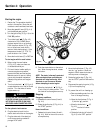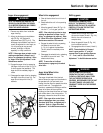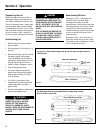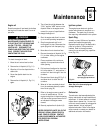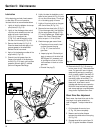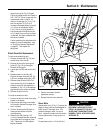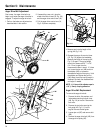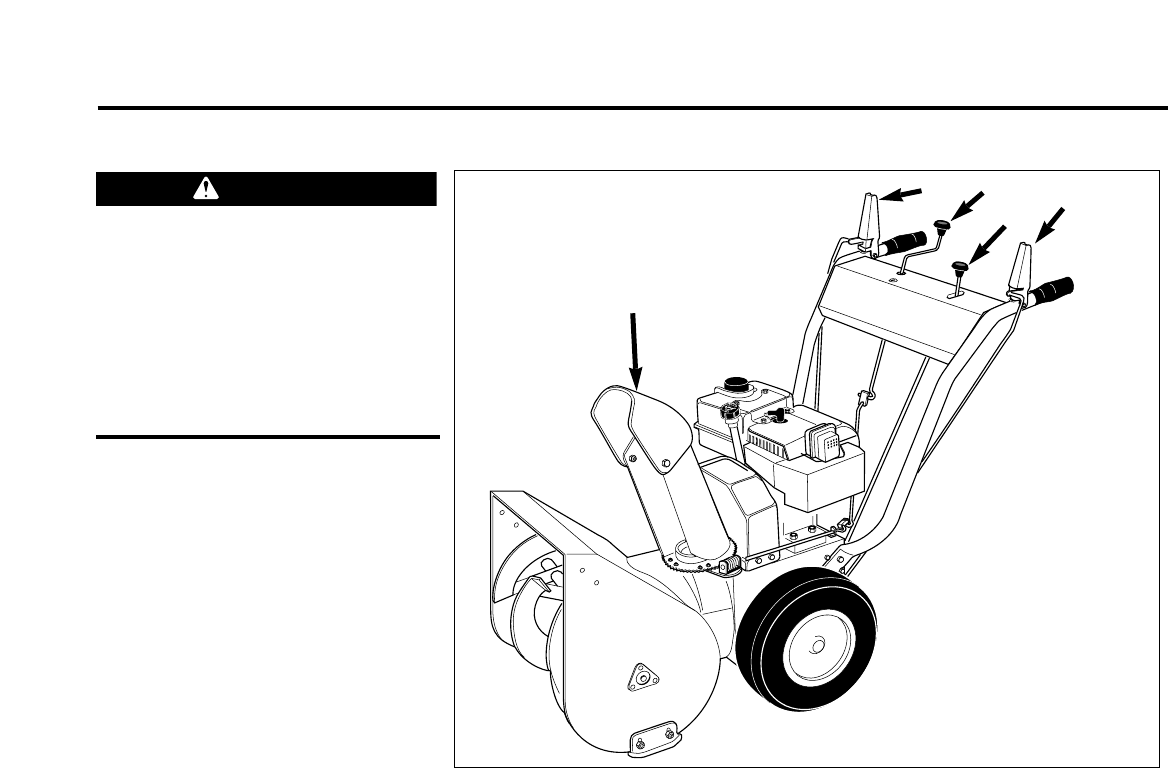
17
Section 4: Operation
Fill the fuel tank with fresh, clean
unleaded gasoline with a minimum
octane rating of 87. Leave 1/2" of
space for fuel expansion. DO NOT
MIX OIL WITH GASOLINE! Tighten
the gasoline fill cap securely. Refer to
the engine owner manual for additional
gasoline information.
DO NOT MIX OIL WITH GASOLINE!
6. The unit should be adjusted so the
auger housing and the scraper blade
(N, Fig. 4-2) are 1/8" above the surface
to be cleared. If the unit is used to
clear gravel or uneven surfaces, this
adjustment should be increased so
gravel or other foreign objects are not
scooped up into the auger.
To adjust the auger housing/scraper
blade height:
a. Move the unit onto a level surface.
b. Loosen the bolts securing the skid
shoes (M, Fig. 4-2).
c. Adjust the skid shoes (M) until they
are in the correct position to support
the auger housing and the scraper
blade (adjust both skid shoes the
same to prevent uneven snow
removal).
d. Tighten the bolts to lock the skid
shoes (M) into the proper position.
7. The scraper blade (N, Fig. 4-2) can
also be adjusted. Adjust the scraper
blade (N) at the carriage bolts
(Z, Fig. 4-2). Adjust the bottom edge
of the scraper blade so it is parallel to
the bottom edge of the auger.
8. Adjust the discharge chute deflector
cap (AA, Fig. 4-3) with lever to the
desired angle of discharge. Usually
keep the angle of the discharge
defector cap low, especially in
windy conditions.
9. Rotate the discharge chute control rod
(crank) (P, Fig. 4-3) and check for
binding.
10. Check the auger drive and wheel drive
control levers (H and L, Fig. 4-3) for
freedom of movement.
11. Check the tire pressure. Inflate both
tires evenly to 8 to 12 PSI (55 to
82 Kpa).
12. Spray silicone spray on the inside of
the deflector chute, the chute
discharge deflector cap, the auger
housing, and on the augers. This will
help prevent snow from sticking (do
not spray silicon spray on rubber or
plastic: damage can result).
13. Re-connect the spark plug wire
(J, Fig. 4-1) to the spark plug if
needed.
14. Rotate the fuel shut-off valve
(K, Fig. 4-1) to the “ON” position,
if so equipped.
Fig. 4-3
B
L
H
P
AA
GASOLINE IS HIGHLY FLAMMABLE AND
ITS VAPORS ARE EXPLOSIVE. NEVER
REMOVE THE GASOLINE TANK FILL CAP
OR ADD FUEL WHEN INDOORS OR
WHEN ENGINE IS RUNNING OR HOT.
WIPE UP SPILLED GASOLINE
IMMEDIATELY. KEEP SMOKING
MATERIALS, SPARKS OR FLAMES FAR
FROM FUEL TANK AND CONTAINERS.
WARNING



